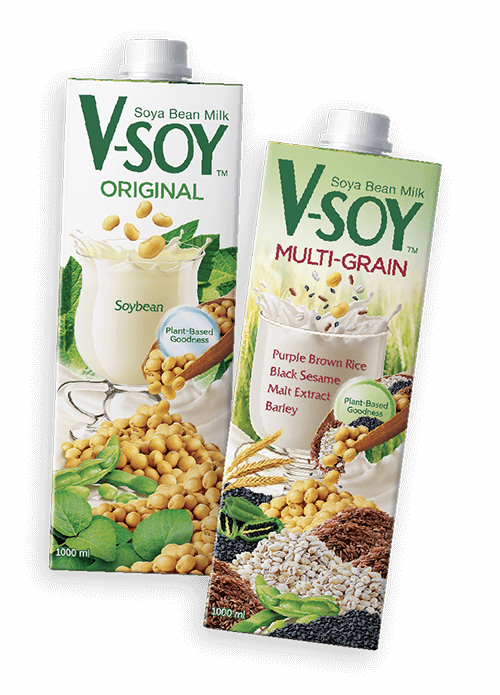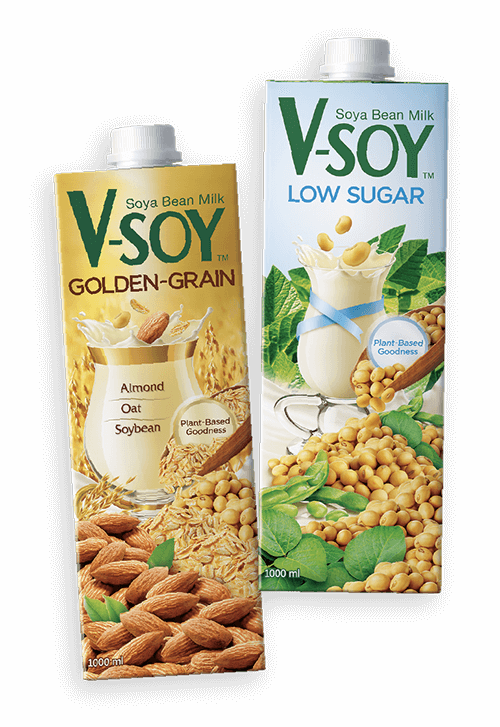
If you are asking yourself, “I am a soy milk lover, but is it OK if I take the same amount of soy milk during pregnancy?”
“What are the nutrition benefits does my baby get if I consume soy milk?”
“And if later I am breastfeeding can I continue drinking soy milk?
I believe as an expectant mum, you may be facing with conflicting information on this. During my years working as a nutritionist, I have encountered similar questions from many mummies, too.
You may have also heard a lot of discussions about how it stacks up against other popular picks, like almond, and more trendy sips, like oat, and whether or not it is the right choice for your diet.
So, to help you, dear curious mummies, I am going to answer some of the most commonly asked questions I usually get about soy milk. The last one is a keeper!

1. But first... what is the recommended intake for soy milk?
Always remember that a mother’s diet is crucial at this moment. Hence, moderation is key. You can consider taking about 1-2 servings of soy milk per day as a part of your healthy diet.

2. Can pregnant and breastfeeding mums continue drinking soy milk?
But the question still persists, can pregnant women still continue consuming soy milk? My answer is yes. Pregnant and lactation mummies need more nutrients, especially proteins for their well-being.
Soy contains a high-quality protein that is needed to support the growth of the fetus, while also containing other beneficial nutrients to promote a good supply of breast milk and prevent nutrient deficiencies in mothers.
3. Does soy contain hormone estrogen?
Soy contains Isoflavones, a type of plant estrogen (phytoestrogen), which is quite similar to human estrogen but much weaker to cause negative health effects. In fact, many studies have revealed that this phytoestrogen can help to reduce the risks of certain cancers including breast cancer, prostate cancer, and gastric cancer.
4. Does soy raise the risk of breast cancer?
There is no strong evidence to support such a claim. Furthermore, research suggested that a moderate intake of soy (which contains Isoflavones) may help to reduce the risk of breast cancer and its recurrence.
Studies found there was a low prevalence rate of breast cancer in Asian women who moderately consumed soy-based food in their daily meals compared to the westerners.

5. But is there such a thing as consuming too much soy milk?
Consuming soy in moderation is highly recommended. As always, everything should be taken in moderation. But if you are sensitive to soy or any other type of milk, do consult with your doctor if you are experiencing stomach cramps, bloatedness, or even allergy reactions.
As you can see, mummies, you can continue being a soy milk lover because there are tons of benefits from drinking soy milk that you might not even know about. So, let me tell you more about it!
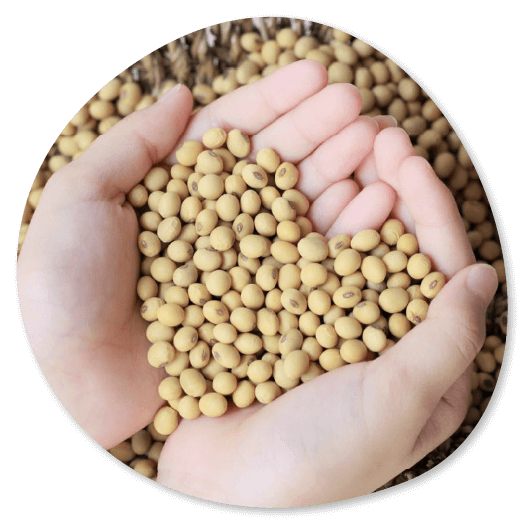
6. What are the benefits of consuming soy milk?
Grateful that we are blessed with a food that is not only delicious but very nutritious.
High-quality protein: Soy is a very good source of protein. It contains all complete essential amino acids that cannot be made by our own body! This is why the protein in soy is considered to be a high-quality one. And of course, it is a great source of proteins for those with lactose intolerance, and vegetarians.
Nutritious: Since it is a plant, soybean is rich with other essential nutrients, such as dietary fibre, antioxidants, and many other important vitamins and minerals, such as iron, calcium, magnesium, zinc, etc.
Healthy digestion: For example, the dietary fibre in soybean is useful in a healthy digestive system, where it is good to help with your digestion and thus ultimately, improve your immune system.
Regulate blood sugar and cholesterol: If you are diabetic or have high cholesterol, soy is suitable for you because it helps in regulating blood sugar and reduces bad cholesterol in your body.
Protect against cell damage: The antioxidant compounds called polyphenols in soybean are useful in protecting your cells from damage due to oxidative reactions that can cause heart diseases.
And that is not all, mummies! I still have more soy goodness to share with you below!
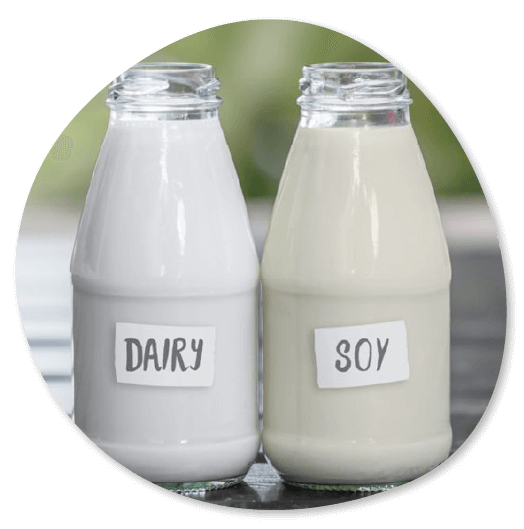
7. What is the difference between soy milk and cow’s milk, and why is soy milk better?
For most Asians, lactose intolerance is something we just have to learn to live with. Embedded in our DNA is our natural tendency to rush to the nearest restroom after having a good time (not so later) consuming dairy products. We tend to develop lactose intolerance when drinking cow’s milk, which if not at a young age, we tend to develop this as we get older.
So, for the alternative, many experts will recommend soy milk as the solution. Because soy milk is plant-based, we discard the risk of having lactose intolerance.
Plus, due to research, soy milk has a very low risk to cause allergy in individuals. This is why infants or children with sensitive digestive systems or eczema are often suitable to consume soy-based formula rather than dairy-based.
8. V-Soy™, delicious and healthier choice of soy milk!
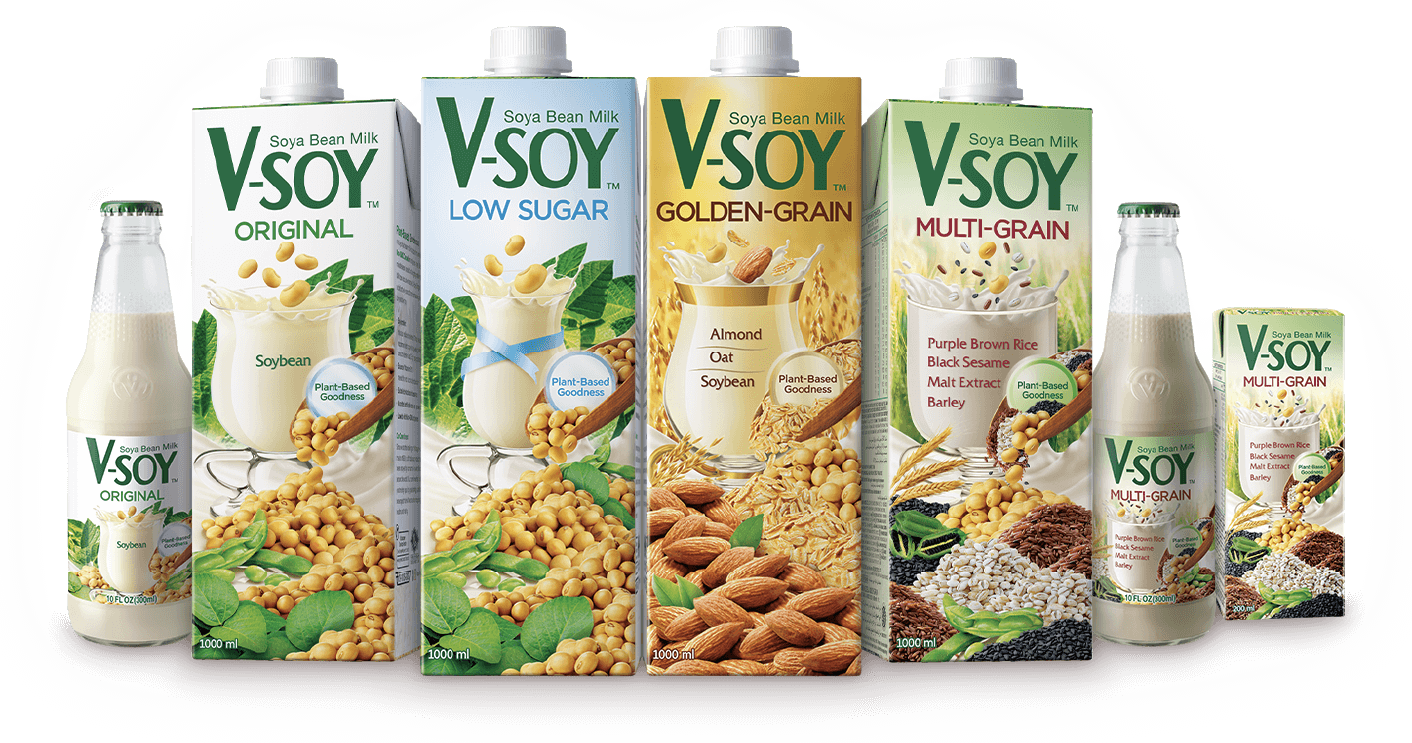
And here is my favourite (and recommended) fact about soy milk: opt for V-Soy™!
We have established here that consuming soy can help to provide daily essential nutrients. And the best part is V-Soy™ has a few varieties of soy milk products, which are V-Soy™ Original, V-Soy™ Multi-Grain, V-Soy™ Golden-Grain, and the latest one: V-Soy™ Low Sugar, to give you that soy goodness you love.
All V-Soy™ products are made from non-GMO soybeans and enhanced with high nutritional values, such as Vitamin A, D, B12, and proteins. Delicious and nutritious, too!
Choose V-Soy™ for a smarter solution and increase your quality of life today! And you are in for a treat, mummies – V-Soy™ has just launched its new online shop on Lazada, so check it out now and make your purchase!
Lastly, do not forget, dear mummies, to head on over to V-Soy’s Facebook and Instagram pages to learn more about their products and stay updated on the latest on soy milk
And while you are on V-Soy’s social media, do take some time to tune in to the V-Soy Fit Tribe Series, where you can find heart-pumping workout videos and tasty healthy recipes to have fun with the whole family.
The series is available on V-Soy World’s Facebook, IGTV and YouTube channel.
Well, there you have it, mummies! We have come to the end of the article and I hope I was able to answer all your soy milk questions that have been tickling your brain for a while and ease your decision on this.
Reference:
- Christopher, C. (2004). Soy protein allergy: incidence and relative severity. The Journal of Nutrition. 134(5):1213S-1219S. DOI: 10.1093/jn/134.5.1213S.
- Leena, HC. et.al. (2010). Is soy consumption good or bad for the breast? The Journal of Nutrition. 140(12). 2326S–2334S. DOI: 10.3945/jn.110.124230
- Mark, M. (2016). Soy and health update: Evaluation of clinical and epidemiologic literature. Nutrients. 8(12). 754. DOI: 10.3390/nu8120754
- Jill, HR. et. al (2009). Clinical studies show no effects of soy protein or isoflavones on reproductive hormones in men: results of a meta-analysis. Fertilityand Sterility. 94(3). 997-1007. DOI: 10.1016/j.fertnstert.2009.04.038
- Simon, S. (2019, April 29). Soy and Cancer Risk: Our Expert’s Advice. Retrieved December 01, 2020, from https://www.cancer.org/latest-news/soy-and-cancer-risk-our-experts-advice.html
- Anonymous. (n.d.). Retrieved December 01, 2020, from https://www.dana-farber.org/for-patients-and-families/care-and-treatment/support-services-and-amenities/nutrition-services/faqs/soy-and-cancer/%C2%A0
